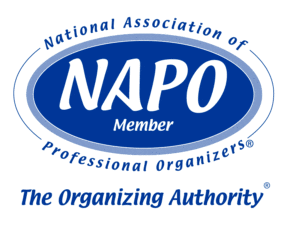(June is Effective Communication Month. I love studying the impacts of how we communicate, so you will see multiple posts this month about effective communication, communication styles, etc. )
Communication (from Latin commūnicāre, meaning “to share”[1]) is the act of conveying intended meanings from one entity or group to another through the use of mutually understood signs and semiotic rules. Wikipedia
The word that sticks out the most in this definition to me is “intended.” Sometimes the most difficult conversations I have is within my own family: siblings, husband, kids, nieces/nephews.
Why is that? Just to name a few of the disconnects I’ve encountered:
- Families sometimes develop communication “shorthand” that sometimes fails.
- Because we may be so close to our family, we think the other person automatically understands our perspective.
- Different generations have different communication styles and expectations.
- Unfortunately, we may not be as diplomatic with our family as we are with others.
Shorthand:
You know how sometimes you can just look at someone and you absolutely “get” where they are coming from? How frequently do you finish the sentence when talking to someone you are deeply familiar with? How many times have you only had to use a few words to convey a message to someone you are around a lot? Shorthand can sometimes be beneficial or a huge stumbling block if it’s misinterpreted. Funny story: one of the first disconnects my husband and I had was about cherry pie vs apple pie. So, whenever we encounter a frustrating communication situation we will often ask “is this a cherry pie moment?” Each of us knows exactly what the phrase means.
Perspective:
Just because we had similar life experiences and perspectives as kids, doesn’t mean we will share the same perspective as adults. I moved away from the area where I grew up. Because of that, I’ve experienced things as an adult that my siblings haven’t; my siblings have had experiences that I haven’t. That’s what happens. That’s life. Those dis-similar life experiences change our perspectives.
Styles and Expectations:
I’m a baby-boomer. I am a verbal processor. I love to talk. I like to text. I over-communicate via e-mail. I write letters. I return EVERYONE’s phone calls. If someone sends me a text, I try to get right back to them. If someone leaves me a voicemail, I call them right back. I send “thank you” notes. Fortunately, my husband and I have similar communication styles. Some of my other family members, not so much. It’s not because they don’t love me (I assume they do), it’s that we communicate differently. I’ve many times left a voicemail saying something like “I need to talk to you about Grandma, please give me a call back” and received a text a couple days later saying “I saw you called. What do you need?” Well, for one, for you to call me like my voicemail asked. (Snarky, I know!) We have different styles and different expectations which may cause underlying frustration.
Diplomacy
Why is it that we are sometimes the least diplomatic with the ones we care the most about? I’ve seen people who deeply love each other be sharp-toned, rude, unkind, sarcastic, etc. When asked about it, they will say “oh, they know I love them and I’m not serious.” Well, do they? Are you acting as if you do?
Our families are precious to us. Let’s make sure we are communicating with them in such a way that they know that.
Cindy Jobs
National Association of Professional Organizers, Seattle Chapter Vice President
Institute for Challenging Disorganization:
Level I Certificates earned in Chronic Disorganization; ADD; Client Administration; Time Management; Mental Health; and Hoarding.
Level II Specialist Certificates earned in Chronic Disorganization and ADHD.
Coach Approach for Organizers
Graduate of the Comprehensive Training Program: Coaching Essentials; Strengths-Based Coaching; Brain-Based Coaching; Life and ADHD Coaching; and Organizer Coach Integration
Graduate-level training: Body-Based Coaching; ADHD Coaching Competencies




